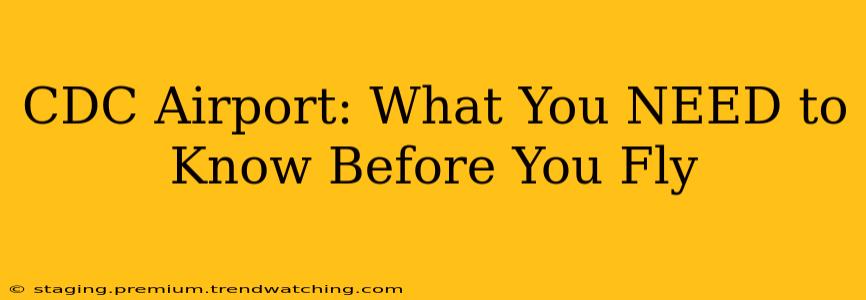Flying can be exciting, but navigating airport procedures, especially with evolving health guidelines, can be stressful. This guide provides essential information to help you understand the CDC's airport recommendations and travel safely and smoothly. We'll cover everything from pre-flight preparations to what to expect at the airport and beyond. While specific guidelines can change, understanding the general principles will empower you to make informed decisions before, during, and after your flight.
What are the CDC's current recommendations for air travel?
The CDC continuously updates its travel recommendations based on the latest scientific evidence and global health situations. Their guidelines generally focus on minimizing the risk of COVID-19 and other infectious diseases transmission. While mandates have lessened, the CDC encourages a layered approach to protection, including vaccination, masking (especially in crowded areas), and hand hygiene. It’s crucial to check the CDC website for the most up-to-date information before your trip as recommendations evolve.
Do I need a COVID-19 test to fly domestically or internationally?
Testing requirements vary dramatically based on your destination and airline. Domestically, COVID-19 testing is generally not mandated, but some airlines or individual states might have specific policies. Internationally, testing requirements are far more common, with many countries requiring a negative COVID-19 test before departure or upon arrival. Always check the specific entry requirements for your destination country well in advance of your flight. These requirements can change rapidly, so reviewing them just days before your trip is insufficient.
What should I pack for my trip considering the CDC's recommendations?
Packing for air travel with health precautions in mind means including items to minimize infection risk. This includes hand sanitizer (at least 60% alcohol), disinfectant wipes, and face masks. Consider packing extra masks in case one gets damaged or lost. Remember to pack any necessary medications in your carry-on luggage. If you are prone to motion sickness, consider including medication for that as well. Finally, check your airline’s baggage policies and size/weight restrictions before you pack.
How can I minimize my risk of infection at the airport and on the plane?
Minimizing your risk involves a layered approach. Washing or sanitizing your hands frequently is crucial. Use disinfectant wipes to clean frequently touched surfaces on your seat and tray table. Wearing a mask, especially in crowded areas like security lines and gates, significantly reduces the risk of transmission. Maintain social distancing where possible. If you feel unwell, consider postponing your trip. Most importantly, stay informed about the latest CDC guidelines and your airline’s specific health protocols.
What should I do if I feel sick before, during, or after my flight?
If you feel unwell before your flight, contact your airline and reschedule your travel plans. If you become sick during your flight, inform a flight attendant immediately. Upon arrival, if you develop symptoms, monitor your health and consider getting tested. Follow any quarantine or isolation instructions issued by local health authorities. Remember to consult with a healthcare provider if you have concerns about your health.
Are there specific cleaning protocols for airports and airplanes?
Airports and airlines generally implement enhanced cleaning and disinfection procedures, including frequent cleaning of high-touch surfaces and the use of EPA-registered disinfectants. The specific protocols vary depending on the airport and airline, but most aim to provide a cleaner and healthier environment. However, personal precautions remain essential.
What resources are available from the CDC for travelers?
The CDC's website is the primary source of information for travelers. It provides up-to-date recommendations, travel notices, and country-specific information regarding health risks. The website also offers guidance on various health issues related to travel, including food safety, mosquito-borne illnesses, and other health concerns. Bookmarking the CDC's travel page is highly recommended for all travelers.
By following these guidelines and staying informed about the latest updates from the CDC and your airline, you can travel safely and confidently. Remember that proactive measures minimize risk, making your journey more enjoyable and stress-free. Remember to check the official CDC website for the most up-to-date and accurate information before embarking on your travels.

